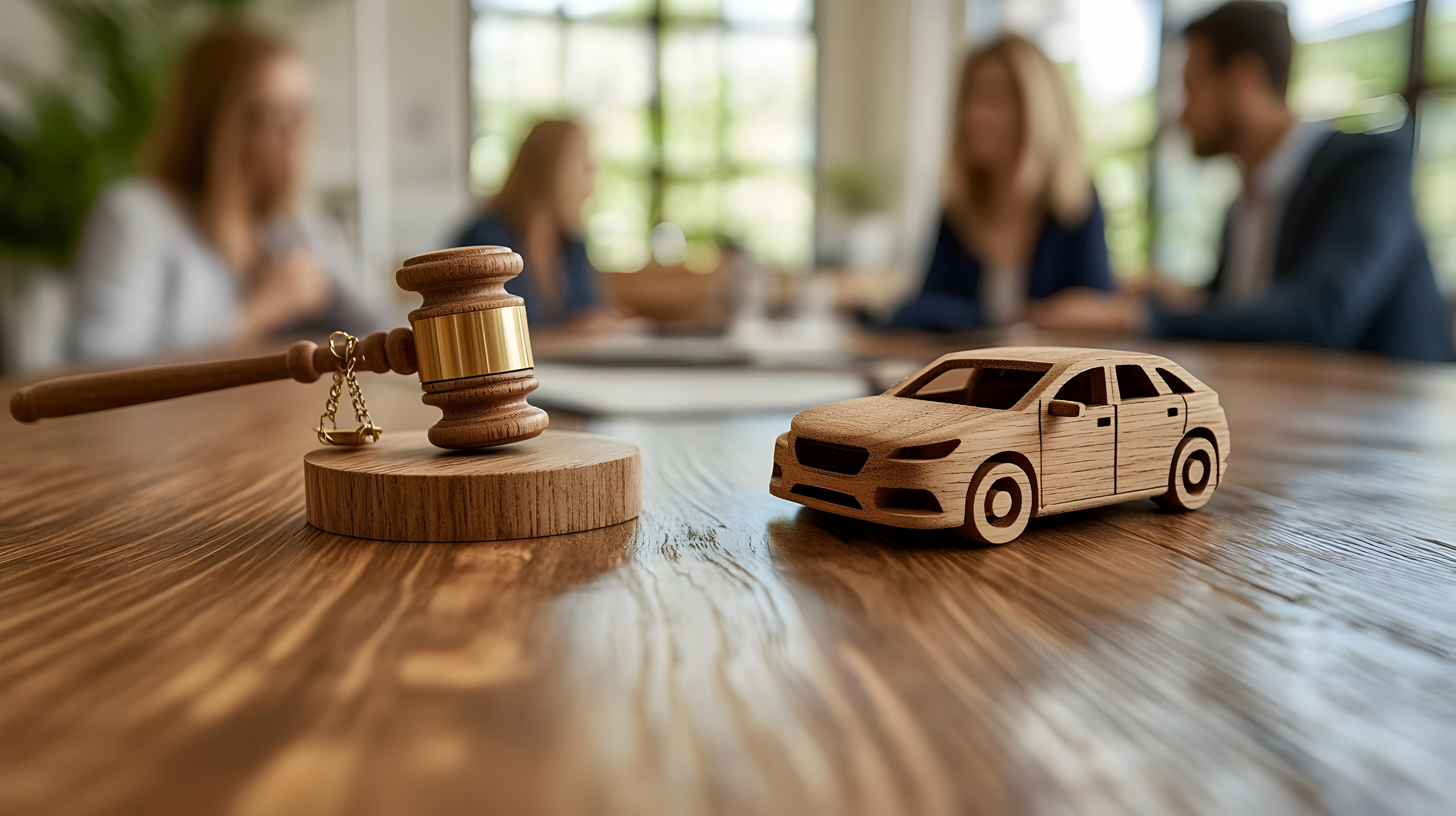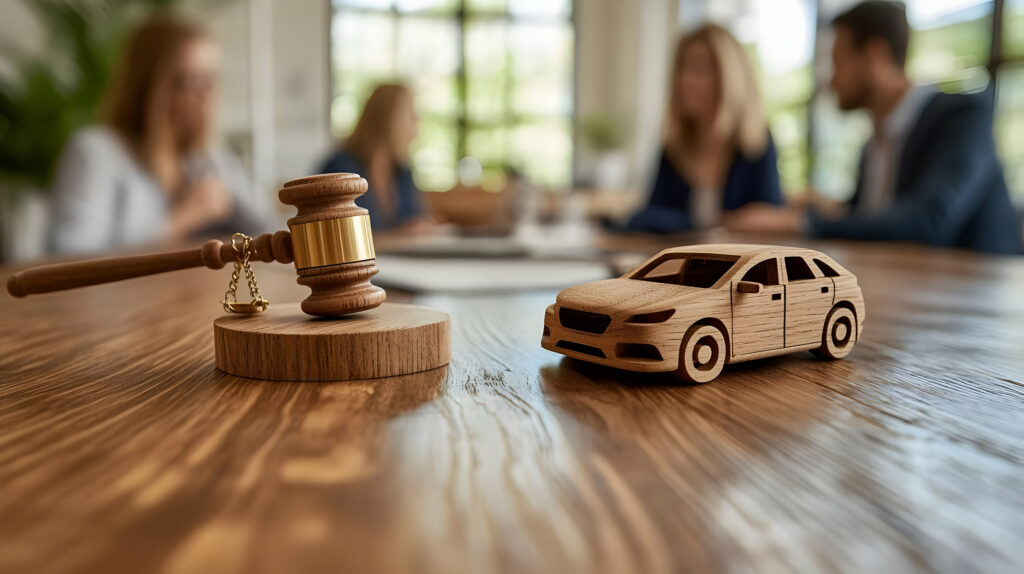Can You Reopen a Car Accident Case After Settlement in Florida?
Reopening a car accident case after a settlement in Florida can seem like a daunting task, but it’s not necessarily impossible. Many individuals believe that once they have agreed to a settlement, the case is completely closed. However, under certain circumstances, Florida law allows for the reopening of a car accident case, particularly if new evidence emerges, if the settlement was obtained fraudulently, or if there was an error or coercion involved in the agreement.
Understanding the legal landscape surrounding settlement reopening is crucial if you suspect your case was unfairly concluded. This guide will walk you through the essential steps, legal grounds, and potential challenges involved in attempting to reopen a settled car accident case in Florida.
Understanding Car Accident Settlements in Florida
What Is a Car Accident Settlement?
A car accident settlement is a legally binding agreement between the parties involved in a car accident dispute—typically the injured party and the insurance company. The settlement typically compensates the victim for:
- Medical Expenses: Immediate and future healthcare costs resulting from the accident.
- Property Damage: Repairs or replacement of the vehicle and any personal property damaged.
- Lost Wages: Compensation for time off work due to injuries.
- Pain and Suffering: Non-economic damages related to physical and emotional distress.
When both parties agree on a settlement, they usually sign a release form, which legally prohibits the injured party from pursuing further compensation related to the incident. This finality makes reopening a settled case challenging.
Why Are Settlements Typically Considered Final?
The purpose of a settlement is to resolve the dispute without going to court. Once a settlement is signed, it generally prevents the injured party from reopening the case, regardless of how circumstances may change afterward.
Insurance companies and liable parties prefer finality, as it provides them with legal protection from future claims. However, there are specific instances where reopening the case is possible under Florida law, and understanding these exceptions is essential.
Common Misconceptions About Car Accident Settlements
Despite the binding nature of most settlements, some misconceptions persist regarding whether they can be revisited. Below are some of the most common misunderstandings:
- Misconception 1: Once Signed, the Case Is Permanently Closed:
While it is true that settlements are designed to be final, Florida law allows reopening cases under specific circumstances such as fraud or newly discovered evidence. - Misconception 2: You Cannot Sue for Additional Compensation After Signing:
If new injuries or damages emerge after the settlement, it may still be possible to reopen the case, particularly if the original injury was not fully understood at the time of signing. - Misconception 3: The Insurance Company’s Decision Is Unchangeable:
Insurance companies might imply that the settlement is set in stone, but they cannot legally prevent you from pursuing reopening if valid legal grounds exist.
Legal Grounds for Reopening a Settled Car Accident Case in Florida
Reopening a case after signing a settlement is not easy, but it is legally permissible under the following circumstances:
1. Discovery of New Evidence
Sometimes, critical evidence that was not available at the time of the settlement may come to light. This evidence must be substantial and not something that could have been reasonably discovered before the settlement.
Examples of Valid New Evidence
- Medical Complications: If a latent injury manifests weeks or months after the settlement, it may warrant reopening. For example, a traumatic brain injury (TBI) diagnosed after the agreement.
- Eyewitness Accounts: Previously unavailable witnesses whose statements significantly change the perspective of the accident.
- Video Footage: New surveillance footage that proves the other party’s negligence.
What to Do If New Evidence Arises
- Document the Evidence: Gather all relevant information, including medical records, witness statements, or video clips.
- Consult a Lawyer: An attorney can assess whether the new evidence justifies reopening the case.
- File a Motion: The lawyer will help you draft and file a motion to vacate the original settlement based on the new findings.
2. Fraud or Misrepresentation During Settlement
If you can demonstrate that the opposing party or insurance company deliberately deceived you during the settlement process, you might have grounds to challenge it.
Common Fraudulent Practices
- Concealment of Facts: Intentionally hiding crucial information that could affect the settlement amount.
- Misrepresentation of Policy Limits: Providing false information about insurance coverage to reduce the payout.
- False Injury Claims by the Opposing Party: If the other driver falsely claimed injuries to inflate compensation.
Steps to Prove Fraud
- Gather Evidence: Obtain documentation that proves the deceitful act, such as misleading medical reports or insurance statements.
- Legal Consultation: Discuss your evidence with a personal injury attorney.
- File a Motion to Reopen: The court will examine the validity of your fraud claim.
3. Coercion or Duress at the Time of Signing
If you were pressured into agreeing to the settlement, it may not be legally binding. Coercion can occur if:
- An insurance adjuster threatens to withdraw all offers if you do not sign immediately.
- You were mentally incapacitated due to your injuries and were not fully aware of the settlement terms.
- Someone close to you pressured you to sign without fully understanding the consequences.
Proving Coercion or Duress
- Witness Testimony: Statements from those who witnessed the coercion.
- Medical Evidence: Demonstrating impaired mental capacity at the time of signing.
- Legal Support: A lawyer can help argue that your consent was not freely given.
4. Mistake or Clerical Error in the Settlement Agreement
Sometimes, an error in the settlement document itself can justify reopening the case. These errors may include:
- Misstated Compensation Amount: A typo that significantly reduces your payout.
- Omitted Damages: Failing to include compensation for specific medical treatments.
- Legal Inconsistencies: Conflicting clauses within the agreement.
Correcting Settlement Errors
- Identify the Mistake: Pinpoint the exact issue within the agreement.
- Notify the Insurance Company: They may be willing to amend without court involvement.
- File a Motion: If the insurer refuses, you may need to file a motion to correct the settlement.
Legal Procedures for Reopening a Settled Car Accident Case
1. Filing a Motion to Vacate the Settlement
A motion to vacate asks the court to nullify the settlement based on the grounds mentioned earlier. This process requires:
- Drafting the Motion: Clearly stating the legal reasons for reopening.
- Presenting Evidence: Submitting supporting documents and witness testimonies.
- Court Hearing: Attending the session where a judge will evaluate your motion.
2. Appealing a Settlement Decision in Florida
If the court denies your motion to vacate, you may appeal the decision. An appeal is more formal and requires proving that the original decision was legally incorrect.
3. Seeking Legal Advice and Representation
Since reopening a case is legally complex, consulting a personal injury attorney is highly recommended. A qualified lawyer will help:
- Assess the Merits: Determine whether reopening is feasible.
- Prepare Documentation: Gather evidence and file motions correctly.
- Represent You in Court: Advocate on your behalf during hearings.
Challenges and Considerations When Reopening a Case
Statute of Limitations and Time Restrictions
Florida law has strict deadlines for challenging a settlement. Typically, the statute of limitations for personal injury cases is four years, but cases involving fraud may have exceptions. Consulting a lawyer as soon as you discover an issue is critical.
Financial and Emotional Costs
Reopening a case can be expensive and emotionally taxing. Consider the potential outcomes and whether the possible compensation outweighs the costs.
Proving Your Case in Court
Judges will scrutinize reopened cases to ensure that the claim is valid and not simply a matter of dissatisfaction with the original settlement.
Real-Life Examples of Successful Reopenings
- Medical Misdiagnosis Case: A man reopened his case after discovering a spinal injury initially overlooked.
- Fraudulent Settlement Claim: A woman successfully challenged her settlement when surveillance footage surfaced showing the other driver’s fault.
- Legal Error Case: A clerical error that underestimated damages was corrected after a motion to reopen.
Frequently Asked Questions (FAQ) on Reopening a Car Accident Case After Settlement in Florida
Can I reopen a car accident case after settling in Florida?
Yes, it is possible to reopen a car accident case after a settlement in Florida, but it is rare and only permitted under specific legal circumstances. These include discovering new evidence that significantly impacts the case, proving that fraud or misrepresentation occurred during the settlement process, demonstrating that the settlement was agreed upon under coercion or duress, or identifying a clerical or legal mistake within the settlement agreement itself.
What are the most common reasons for reopening a settled car accident case?
The most common reasons include the discovery of new evidence, such as medical issues that were not apparent at the time of settlement; proving that the other party or their insurer engaged in fraudulent activities; showing that coercion or undue pressure was involved during the settlement process; and identifying legal errors or omissions in the settlement document.
How do I prove that fraud occurred during my car accident settlement?
To prove fraud, you must gather clear evidence that the other party intentionally misled you during the settlement process. This can include false statements about policy limits, deliberately withheld information regarding injuries or damages, or fabricated evidence. Documentation, recorded statements, expert testimonies, and witness accounts are essential in proving fraudulent activity.
What should I do if new injuries are discovered after settling my case?
If new injuries are discovered after the settlement, it is crucial to gather medical evidence proving that these injuries are directly linked to the car accident and were not identified or evident during the original settlement process. Consulting a personal injury attorney immediately is essential, as they can assess whether this new medical information justifies reopening the case.
Can I challenge a settlement if I was pressured to sign?
Yes, if you were coerced, threatened, or otherwise pressured into signing the settlement agreement, you may have grounds to challenge it. You will need to demonstrate that you did not willingly agree to the settlement terms, often through witness statements, medical evidence indicating compromised mental capacity, or documentation proving undue influence.
Contact Lawlor, White & Murphey Today
Navigating the process of reopening a car accident case in Florida is complex and often requires professional legal support. A personal injury attorney specializing in post-settlement disputes can assess your situation, help gather evidence, and represent you in court.
If you believe your settlement was unfair or fraudulent, consult with a lawyer as soon as possible to protect your rights. Contact Lawlor, White & Murphey today to discuss your case.

